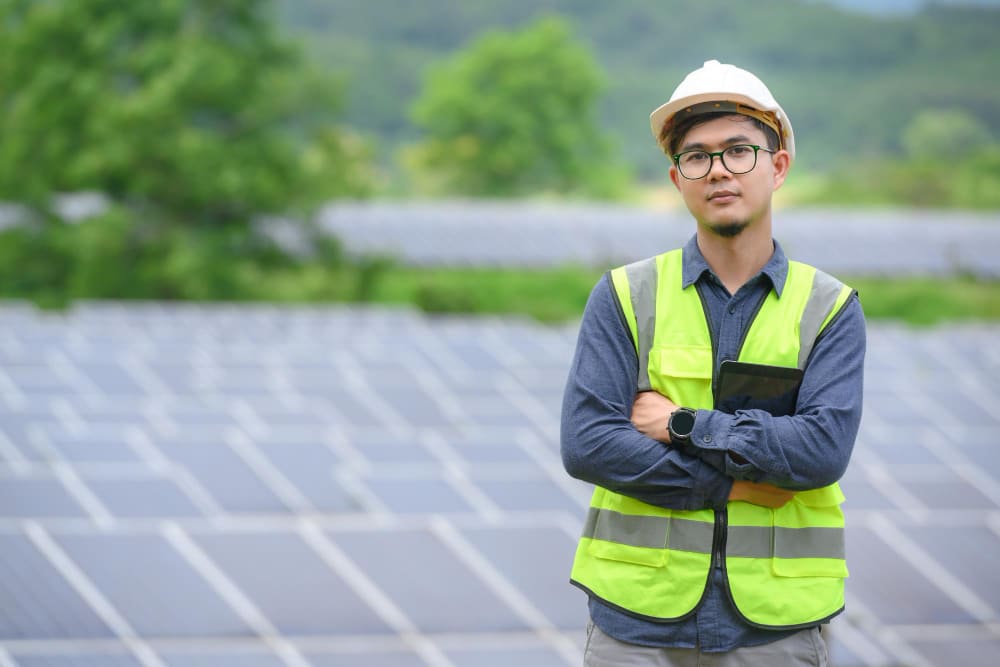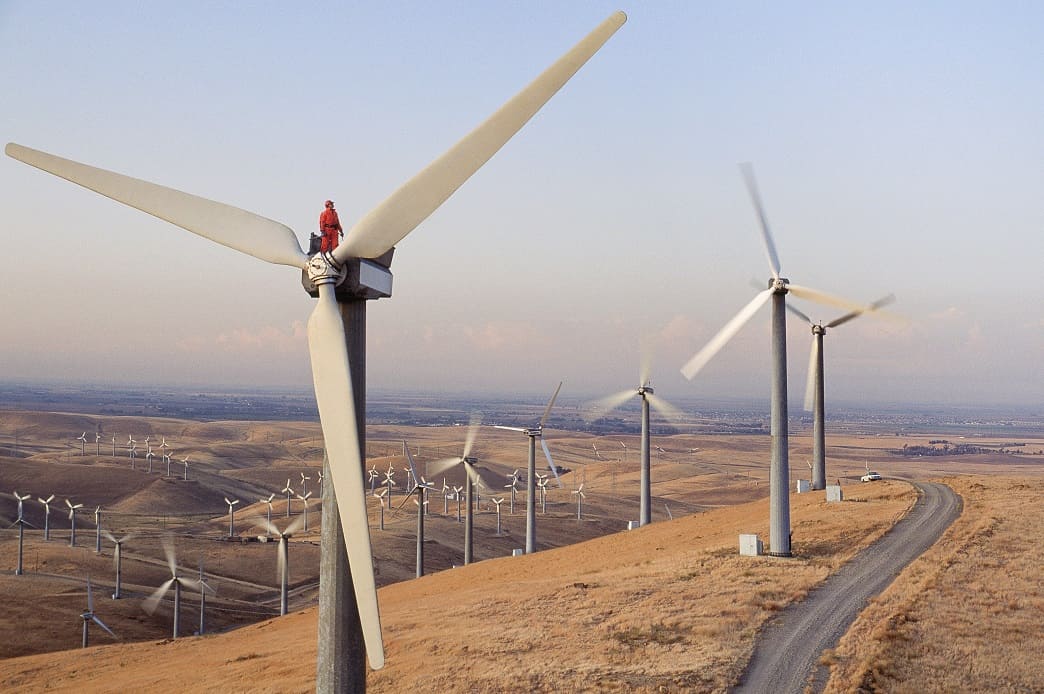Today there is a collective navigation towards a greener economy, one that encourages sustainability and offers a better quality of life for all. This transition has seen an increase in the number of green jobs across the globe, including Vietnam. But what really are ‘green jobs’?
Green jobs vary in description and responsibility, yet they mutually contribute to the primary goal of building a more environmentally conscious and sustainable future.
However, this green transition unfolds during a period of talent scarcity. According to the ManpowerGroup Green Business Transformation report, 75% of employers across the globe say they are struggling to find the skilled talent they need. This indicates a significant demand for skilled workers within the green sector. In this blog, we’ll explore the definition of green jobs, the types of jobs available and how you can get onto the green career ladder.

Defining green jobs
According to the ILO, green jobs are decent jobs in any economic sector (e.g. agriculture, industry, services, administration) which contribute to preserving, restoring, and enhancing environmental quality. Green jobs reduce the environmental impact of enterprises and economic sectors by improving the efficiency of energy, raw materials, and water; de-carbonizing the economy and bringing down emissions of greenhouse gases; minimizing or avoiding all forms of waste and pollution; protecting or restoring ecosystems and biodiversity; and supporting adaptation to the effects of climate change.
There is a growing number of sectors that are actively seeking to adjust their processes to help tackle issues such as climate change.
Exploring the spectrum of opportunities
Within the realm of green jobs, opportunities spread across many industries. The Manpower Green Business Transformation report offers a nuanced perspective, categorizing these roles into five different ‘shades’ that reflect evolving skill sets and responsibilities:
Green jobs: These are current roles that contribute to environmental sustainability but do not require new skills
Greening jobs: These are existing roles that are becoming more impactful to environmental sustainability and require some new skills
Green+ jobs: These are new roles being created to accelerate environmental sustainability and will require many new skills
Green skills: These are the knowledge, soft and technical abilities, values and attitudes needed to live in, develop and support a sustainable and research efficient society
Non-green jobs: These are roles that do not contribute to an employer’s overall environmental sustainability.

From energy, agriculture, construction and manufacturing, to transport, waste management, policy and research, green career opportunities are endless. Here are some examples of green jobs that you can get into*:
An EHS executive is responsible for ensuring compliance with environmental, health, and safety regulations in a business. Their duties include developing policies, conducting audits, investigating incidents, and overseeing training programs to ensure a safe and healthy work environment for employees, as well as the organization's environmental responsibility.
A water plant engineer’s duties include designing and analyzing water supply systems (including water treatment plants), analyzing data related to water quality and environmental impact, etc. In using their expertise, they play a crucial role in optimizing water resource utilization, contributing to the sustainable use of non-renewable natural resources.
These skilled professionals design, implement, and evaluate healthcare social programs in rural areas. They also drive community engagement initiatives and advocate for healthcare accessibility in underserved rural communities.
Getting onto the green career ladder
Securing a role in the realm of green jobs demands more than just a basic understanding of the field – it calls for a commitment to continuous learning and skill development. Many green jobs exist within the engineering sector, a sector that commonly offers apprenticeships. An apprenticeship is one great way for you to learn whilst developing skills on the job. These opportunities can go up to degree level, providing a comprehensive foundation for success in the field.
Alternatively, volunteer work or internships present additional avenues for you to develop your skills and gain practical insight into the complexities of environmental stability. Like apprenticeships, these experiences offer you a dynamic learning environment where you can gain expertise in your field.
Crafting a compelling CV tailored to the specific requirements of green roles is paramount in showcasing your suitability for the position. Highlighting your relevant job history and additional experiences that demonstrate your passion for sustainability can significantly strengthen your application. During interviews, articulating these experiences will show your depth of knowledge and will also showcase your genuine commitment to driving positive change in the field.

If you’re ready to start your green career, or progress in your current role, Manpower Vietnam is here to help. With branches in the country, we have hundreds of temporary and permanent green job opportunities available across a range of industries. Our expert consultants are on hand to match your experience and skill set with suitable roles.
View all our job opportunities and apply today!

